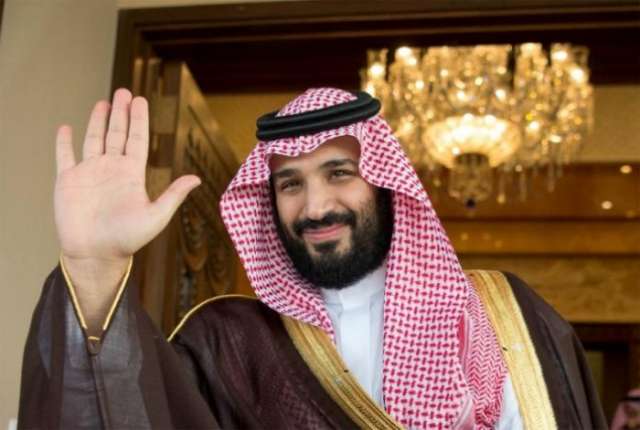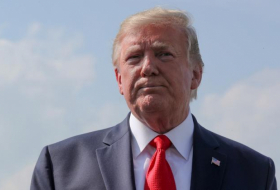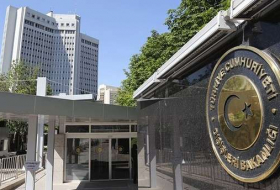Mohammed bin Salman’s second official visit to Washington, the first of more than half a dozen U.S. cities he plans to visit, kicks off Tuesday with meetings at the White House with President Donald Trump and top members of the administration, including Vice President Mike Pence and national security adviser H.R. McMaster.
The visit comes as senior U.S. officials have grown increasingly worried that the crown prince's aggressive moves in the region may further destabilize the Middle East — and shortly after more than a dozen current and former senior U.S. officials told NBC News that intelligence indicates MBS — as the crown prince is known — has blocked his mother from seeing his father, King Salman, for at least two years, as he has solidified his grip on power.
It also comes less than a month ahead of Trump’s next deadline for re-certifying the Iran nuclear deal to Congress, though U.S. and Saudi officials deny that the visit was timed with the deadline in mind. In January, Trump said he was offering his “final waiver” on the Iran deal.
Foreign policy observers believe that Trump is more likely to withdraw from the Obama-era agreement now that Rex Tillerson has been fired as secretary of state.
European allies have warned Trump that pulling out of the Iran nuclear deal may only embolden the Islamic Republic to go its own way, but officials closest to Trump remain skeptical that he will recertify the deal come May 12.
"I think the president likely will move away from it, unless our European counterparts really come together on a framework,” Sen. Bob Corker, R-Tenn., head of the Senate Foreign Relations Committee, told CBS’s “Face the Nation” on Sunday. “And it doesn't feel to me that they are.”
Saudi Arabia’s hawkish young crown prince has made it clear that his patience is wearing thin. He has accused Iran of waging proxy wars across the Arab world, through Shiite groups in Yemen, Syria, Lebanon and Bahrain. In an interview with CBS’ “60 Minutes," he repeated his assertion that Ayatollah Khamenei is the Middle East’s “Hitler” and must be stopped before it’s too late.
"Saudi Arabia does not want to acquire any nuclear bomb,” bin Salman said in the interview, which aired Sunday. “But without a doubt, if Iran developed a nuclear bomb, we will follow suit as soon as possible."
Energy Secretary Rick Perry traveled last month to London to discuss a deal that would allow the U.S. to sell nuclear reactors to Saudi Arabia. The discussions addressed so-called 123 agreements under the Atomic Energy Act, which contain a set of nonproliferation conditions on how the partner country maintains U.S.-obligated items.
The agreements include conditions that require assurances of peaceful use and prohibitions on uranium enrichment and reprocessing of spent fuel.
Saudi Arabia is currently one of three countries with which the U.S. is negotiating a 123 agreement, but the kingdom has long been reluctant, insisting that uranium enrichment is a matter of national sovereignty. While relations between Saudi Arabia and Israel have improved in recent years, Israel has made clear it doesn’t want to see Riyadh retain a right to enrich or reprocess uranium.
“[MBS] may try to buy the reactors elsewhere, which won't particularly help him because the U.S. will probably use its influence to make sure that wherever he goes, he doesn't get enrichment or reprocessing capabilities,” said Simon Henderson, the Baker fellow and director of the gulf and energy policy program at the Washington Institute for Near East Policy.
Trump’s son-in-law and senior adviser, Jared Kushner, whose budding friendship with bin Salman was seen as key to warmer U.S.-Saudi ties, is facing problems of his own, including troubles with his security clearance to questions and loans involving his family business.
Kushner traveled to Riyadh last fall and discussed his efforts to broker an agreement between the Israelis and Palestinians with bin Salman.
Some weeks later, Saudi Arabia publicly condemned a decision by the Trump administration to recognize Jerusalem, one of the holiest cities in Judaism, Islam and Christianity, as Israel’s official capital. Saudi officials say that they continue to pressure the administration to back down on plans to move the U.S. embassy to Jerusalem, but Trump said this month that those plans are on track and a small version of the embassy will open this summer.
The Saudi crown prince is not scheduled to hold a news conference or issue a public statement when he visits the White House this week. Officials described the stop in Washington as more of a courtesy call before he embarks on a tour that includes meetings with American leaders in energy, technology and cinema. The 32-year-old crown prince is seeking opportunities to help translate his proposed reforms into realities, including advancements in public health and investments in the tech and film industries.
NBC news
More about: MohammedbinSalman
















































